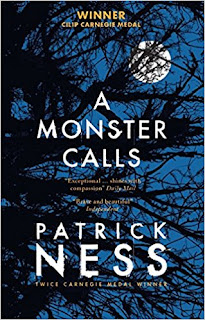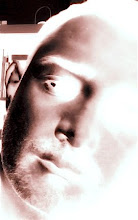‘So you just go back to America,’ Conor carried on, ‘and go back to your other family and we’ll be fine here without you. Because this is going to work.’'
Conor, no ̶ ‘
‘Yes, it is. It’s going to work.’
‘Son,’ his father said, leaning forward. ‘Stories don’t always have happy endings.’
This stopped him. Because they didn’t, did they? That’s one thing the monster had definitely taught him. Stories were wild, wild animals and went off in directions you couldn’t expect. (p. 162)
Heartbreaking, wrecking and inspiring: this is a passage about despair, hope and a portent of an imminent doom.
We are in the park that is opposite the hospital where Conor’s mother was hospitalised to receive the last treatments for her sickness, a cancer. After Conor visited her, Conor’s father takes his son here in order to make him understand the latest issues all the family was facing and their probable and inevitable outcome. ”Stories don’t always have happy endings” (p.162), he says and indeed, this anticipates the tragic finale of the novel when “he [Conor] finally let her [the mother] go” (p.237). However, Conor wants to keep on hoping for her mother’s recovery: he does not accept what clearly appears to be unavoidable; after all, she is going to be treated with a medicine made of yew tree, a healing tree, “the most important of all the healing trees” (p.128).
Nevertheless, the nightmare “with the darkness and the wind and the screaming” (p.15), an indication of the fright and terror for the likely loss of his mother, does not leave Conor at all. It is a constant and painful reminder of his desolation, fear, rage, frustration and guilt. He is heartbroken even though he holds onto hope; therefore, he solely becomes more and more lonely and reserved. Everyone around him fails to address the reality of the situation and this makes him decide to condemn himself to self-punishment, rejecting anyone who tries to help him, even with condescendence.
Does this mean that Conor’s ending story is kind of apocalyptical? The answer is no. It is bittersweet instead: he definitely finds a way of healing himself, because he understood that “stories (…) went off in different directions you couldn’t expect”(p. 162) and he accepts his human nature, “Because humans are complicated beasts”(p. 223).


No hay comentarios:
Publicar un comentario